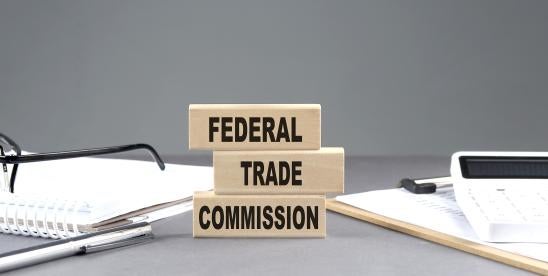The Federal Trade Commission’s Special Open Commission Meeting
On April 23, the FTC voted to disclose the text of its proposed final rule. Following remarks by Chair Lina Khan, a presentation by FTC staff, and a nearly hour-long series of comments by each of the Commissioners, the FTC voted 3-2 to publish the final rule.
The Federal Trade Commission’s Final Noncompete Rule
The 570-page adopting release and final rule is available here. The text of the final rule begins on page 561.
In broad terms, the final rule provides that it is an unfair method of competition (and therefore a violation of Section 5 of the FTC Act) for persons to enter into noncompete agreements with workers after the final rule’s effective date (120 days after publication in the Federal Register). This prospective ban applies to all workers, regardless of income or seniority.
The final rule also retroactively renders unenforceable noncompetes entered into before the final rule’s effective date for all workers other than “senior executives,” defined as workers that both earned at least $151,164 and were in a policy-making position.
The final rule does contain a carveout permitting noncompetes in the sale of a business context provided that certain criteria are satisfied. As we will address in greater detail in a forthcoming alert, the text of the rule’s carveout is much broader than the accompanying commentary explaining the intent and purported scope of the carveout, presaging a potential battlefield for future litigation.
The final rule also requires employers to provide clear and conspicuous notice, prior to the effective date, that existing noncompetes are unenforceable.
The final rule does not ban nonsolicitation or confidentiality covenants, except to the extent that those covenants are so broadly written that, for practical purposes, they function to prevent workers from working for another employer in the same field. The FTC’s adopting release notes that this is a fact-specific inquiry.
Legal Challenges to the Final Rule
The FTC’s final rule will face significant legal challenges, including as to whether the FTC exceeded its authority under the major questions doctrine, as we have discussed here. For example, the US Chamber of Commerce has announced that it intends to file a lawsuit addressing the FTC’s “power grab.”
The Final Rule’s Application to Certain Industries is Unclear
The FTC Act has been interpreted to mean that the FTC lacks jurisdiction to prevent Section 5 violations by nonprofit organizations, including healthcare nonprofits. Comments by Commissioner Slaughter at today’s open meeting, however, suggest that the FTC may seek to apply the final rule to nonprofit businesses if those businesses are actually being run for profit. Furthermore, the FTC’s adopting release notes that US Congress has removed certain enumerated industries, e.g., banks, savings and loan institutions, and certain common carriers, from the FTC’s jurisdiction. But the Federal Deposit Insurance Corporation (FDIC) can enforce the FTC Act against banks, so it is uncertain whether the banks will be subject to the final rule.
The Final Rule Does Not Apply to Franchise Agreements
The FTC had previously requested comments on whether it should ban noncompetes in franchise agreements between franchisors and franchisees. The FTC expressly chose not to extend the ban to franchise agreements. During today’s open meeting, however, two separate commissioners made comments to suggest that franchise related noncompetes remain a focus of the FTC.
Implications of the Final Rule
While there is uncertainty about whether the FTC’s final rule will survive legal challenges, employers should evaluate their use of noncompetes and consider additional or alternative means to protect their legitimate business interests, including through other restrictive covenants or other contractual provisions and ensuring reasonable steps are taken to protect confidential information and trade secrets. Particularly for those employers who traditionally have eschewed a serious confidentiality or trade secrets regime and have instead relied on noncompetes, companies need to evaluate how they will protect their legitimate business interests if the final rule is upheld.
Companies need to evaluate key-employee risk both in general terms and as part of prospective transactions. Employers will also need to ensure they are prepared to comply with the final rule’s notice requirements.






 />i
/>i

